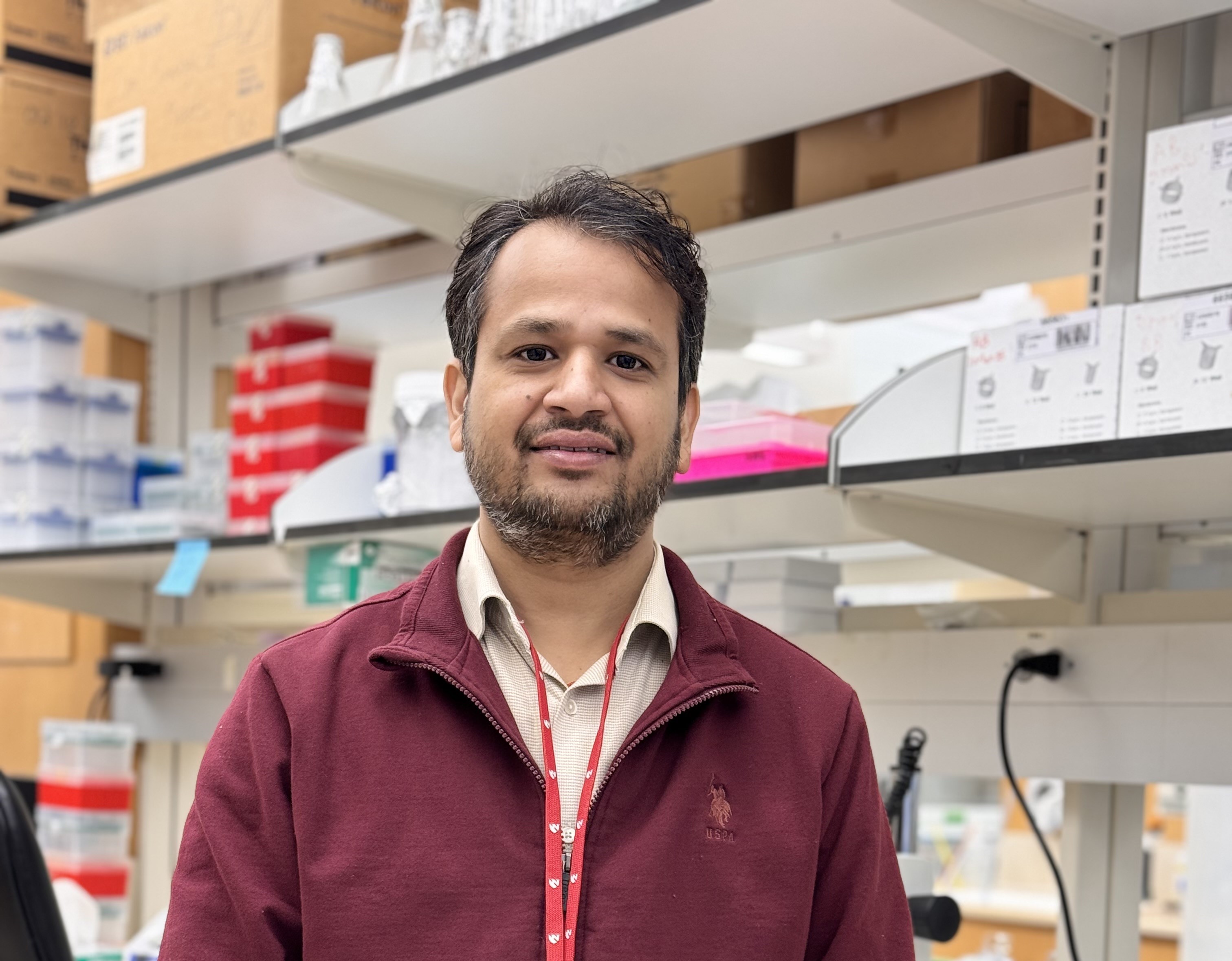Laboratory of Aditya Bade, PhD
Research Interests
1) Drug-induced neurodevelopmental deficits
2) HIV-1/AIDS
3) Neurodegenerative disorders
4) Long-acting nanoformulations
5) Non-invasive bioimaging tool development
Ongoing Projects
Children born to mothers with human immunodeficiency virus type-1 (HIV-1) infection are on the rise due to affordable access of antiretroviral therapy (ART) to pregnant women or those of childbearing age worldwide. Each year, more than a million women living with HIV-1 infection (WLHIV) have given birth while on ART with recorded mother-to-child HIV-1 transmission rates of less than 1%. Despite such benefits, the outcomes of children exposed to antiretroviral drugs (ARVs) during pregnancy, especially pre- and post-natal neurodevelopment, remain incompletely understood. This is underscored by reported potential risks of neural tube defects (NTDs), or postnatal neurodevelopmental deficits linked to periconceptional usage of first line ARVs such as dolutegravir (DTG) or efavirenz (EFV). Thus, my research is focused on elucidating ARVs-linked neurodevelopmental adverse events, identifying underlying mechanisms, and developing novel therapeutic means to improve safety and therapeutic benefits of ARVs during pregnancy. Overall, my research aim is to advance the knowledge of the field, which in turn can help to provide effective care for HIV-1 positive mothers and their fetuses.
Project 1
- Determine effects of dolutegravir and other integrase inhibitors on matrix metalloproteinases (MMPs) activity and/or expression in brain of mice embryos and early age postnatal pups and identify impact of such inhibitions in MMPs activity on neuronal development.
- Investigate postnatal neurobehavioral impairments that occur across mouse development from adolescence to young age following gestational exposure to integrase inhibitors.
- Develop a library of long-acting nanoformulations to attenuate dolutegravir-associated developmental neurotoxicity and improve therapeutic benefits during pregnancy.
Project 2
- Develop new non-invasive bio-imaging methods with high sensitivity and specificity to elucidate early-stage biomarkers (metabolites and proteins) as the underlying mechanisms of ARV-associated neurodevelopmental toxicity, and to aid in the design of therapeutic intervention strategies for attenuating such drug-induced deficits.
Project 3
- Uncover the adverse effects of ARVs on placental development and identify underlying mechanisms.
- Establish a correlation between placental deficits and fetal neurotoxicity.
Project 4
- Discover genetic susceptibility to ARVs-linked neurodevelopmental deficits.
- Develop genetically modified rodent models to establish the underlying susceptibility.
Lab Personnel
Micah Summerlin, B.S.
PhD Student

Majeet Kumar, Ph.D.
Post-Doc Research Associate

Sandip Godse, Ph.D.
Post-Doc Research Associate

Christine Adalikwu, B.S.
Neuroscience and Neuroimmunology Research Intern

Emilia K. Pasek, B.S.
Neuroscience and Neuroimmunology Research Intern

Jhyama Gurung, M.S.
Research Technologist I

Carter Richardson, B.S.
Research Technologist I

Anushka Sajja
Student Volunteer

Past Lab Members
Boajin Yao, PhD
Research Technologist I

Claire Wing
Student Worker

Nicole Liu
Student Worker

Funding
PI: Bade AN
NICHD 1R01 HD115482-01
NICHD R21 HD106842-01
The Nebraska Center for Women’s Health Research Pilot Project Grant
NIMH R21MH134678
NIMH R21MH134678
NIMH R21MH128123
CoNDA Center Pilot Project Grant